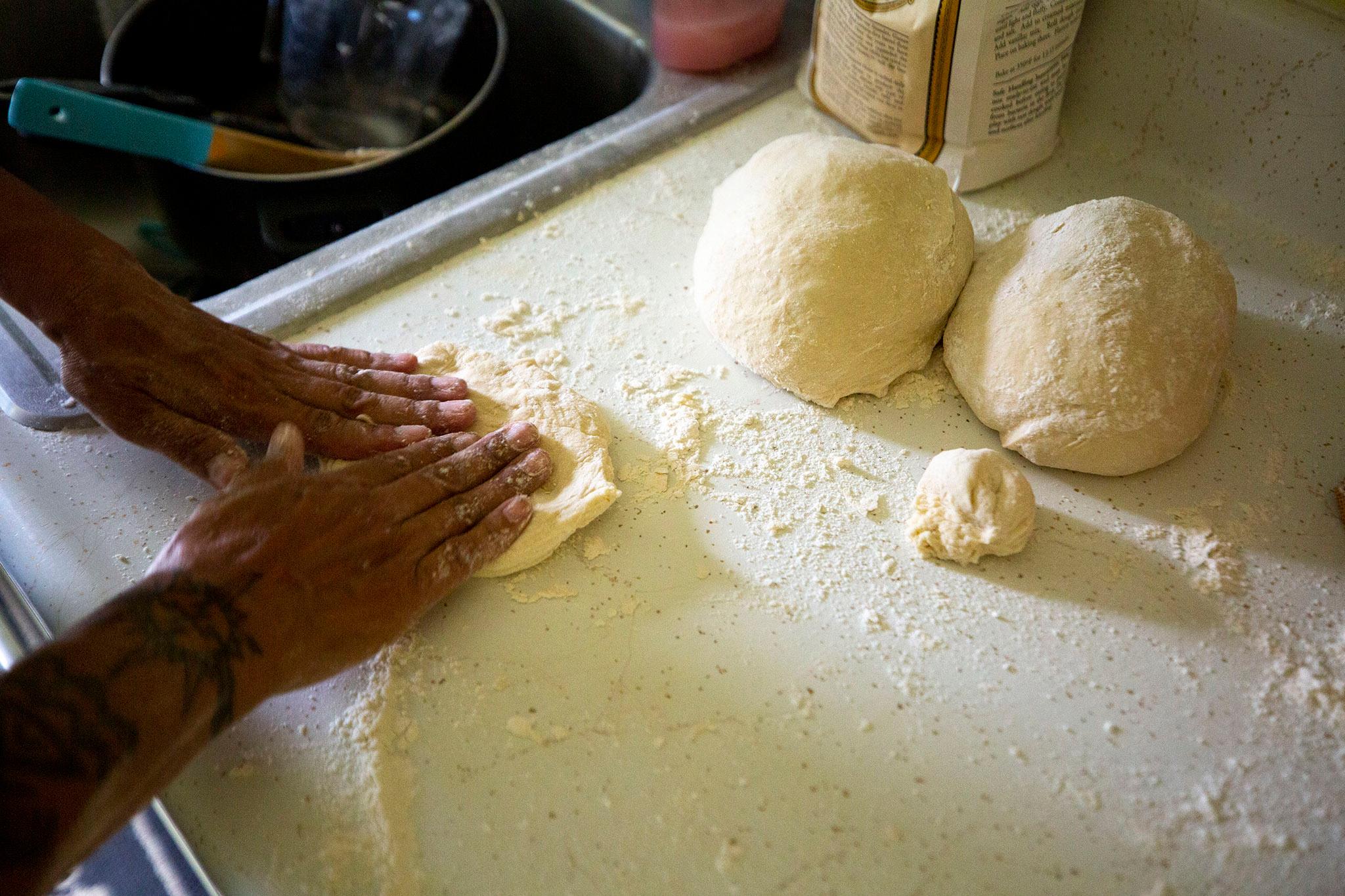The sun is already beginning to scorch Denver as Carla Respects Nothing turns up the burners in the kitchen of her West Colfax home. She kneads balls of dough as ground beef simmers in a pan behind her. Then she flattens one out and drops it carefully into a pot of oil. The frybread begins to brown as oil bubbles up around it.
In a couple of hours, Respects Nothing has enough Indian tacos and fixings to feed at least 50 people. Then her ride shows up, and Taylor Charron loads the feast into the Denver Public Library's bookmobile.
This ritual is the start of Respect Nothing's twice-monthly talking circles, a traditional practice that she's adapted to her work with the library. As one of DPL's peer navigators, it's her job to make sure library visitors experiencing homelessness, housing instability and addiction have what they need to succeed. Talking circles, which are sort of like group therapy sessions, are a perfect means to that end. They're places where people can come, speak their pain and be heard.
"Sometimes people don't have that option of people just sitting and listening to what they're going through," she told us. "It just helps that healing."
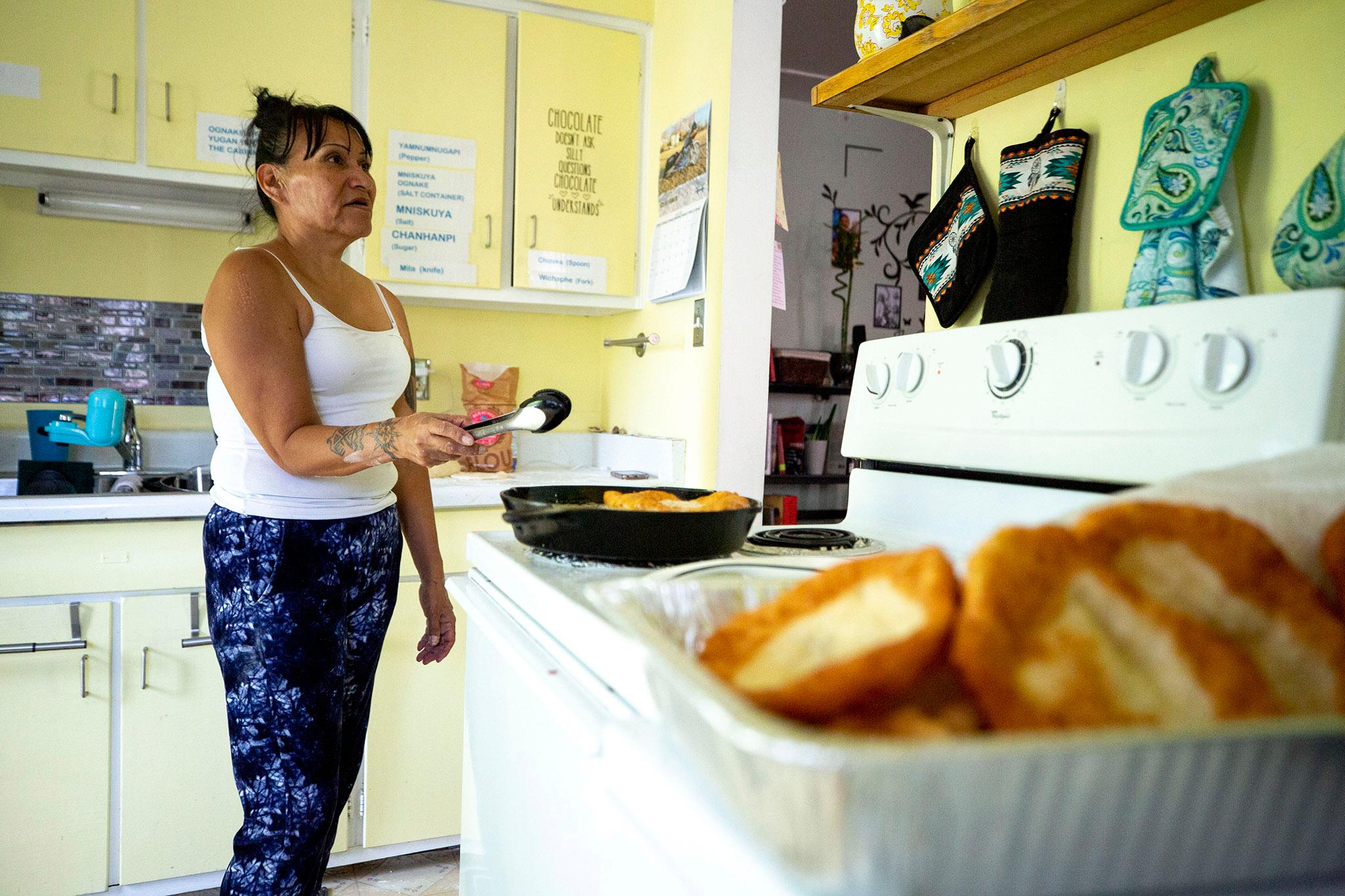
Respects Nothing grew up on the Lakota Nation's Pine Ridge reservation in South Dakota, and she's particularly focused on serving Indigenous people who find themselves on the city's fringes. That's why she's introduced the talking circle framework into her work with the library. It's also why she was able to partner with Denver Indian Health and Family Services to bring a mobile vaccine clinic to her events, which she's been holding in local parks in an effort to protect people living outside from COVID-19.
When Respects Nothing and the bookmobile arrived at Governor's Park last week, representatives from Denver Indian Health were already setting up a tent. They brought a little Styrofoam cooler with them, which contained a couple dozen Johnson and Johnson shots for anyone who wanted one.
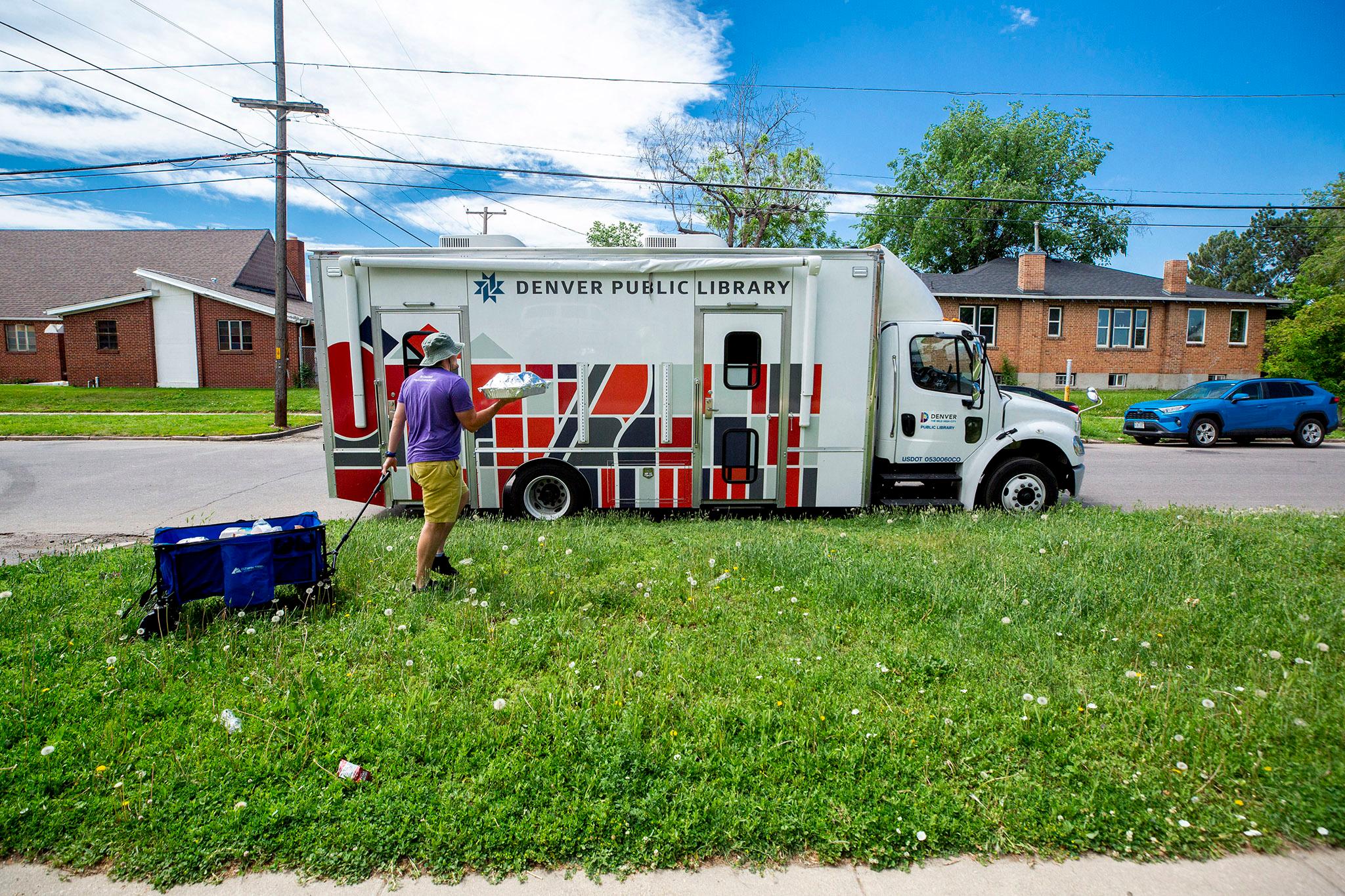
Respects Nothing was always driven to help tribal people find their way, but she said COVID-19 lit a new fire in her.
Being a peer navigator means Respects Nothing has lived experience with housing instability. When the library hired her about two years ago, she was living in a women's shelter. She said the cost of living in the metro, plus the money she was spending to become a certified addiction councilor, pushed her to the brink.
"It just got tough," she recalled.
She spent a few months at the shelter, an experience she said was "crazy," but the position with DPL put her on a new path. The salary helped her get her place on the west side, and she got to work helping people connect to case managers, therapists and housing resources.
Native people are more likely to fall into homelessness than almost any other racial group in this country. Because she understands where they're coming from, Respects Nothing said she was able to make a significant positive impact for those who came into the library.
"There's a lot of them that come from the reservations that want a better life, but they're so used to being on the reservation, so they're not really open to asking for help," she said. "The Natives on the street, someone needs to have a voice for them."
As Pine Ridge locked down to outsiders and the Navajo Nation struggled to contain infections last year, Respects Nothing felt compelled to do more. So she started making calls. As she moved her talking circles outside, their missions evolved. Instead of just offering lunch and a safe place to talk, they became centers for resources and vaccines.
"We lost a lot of elders, and we want to see people succeed," she told us.
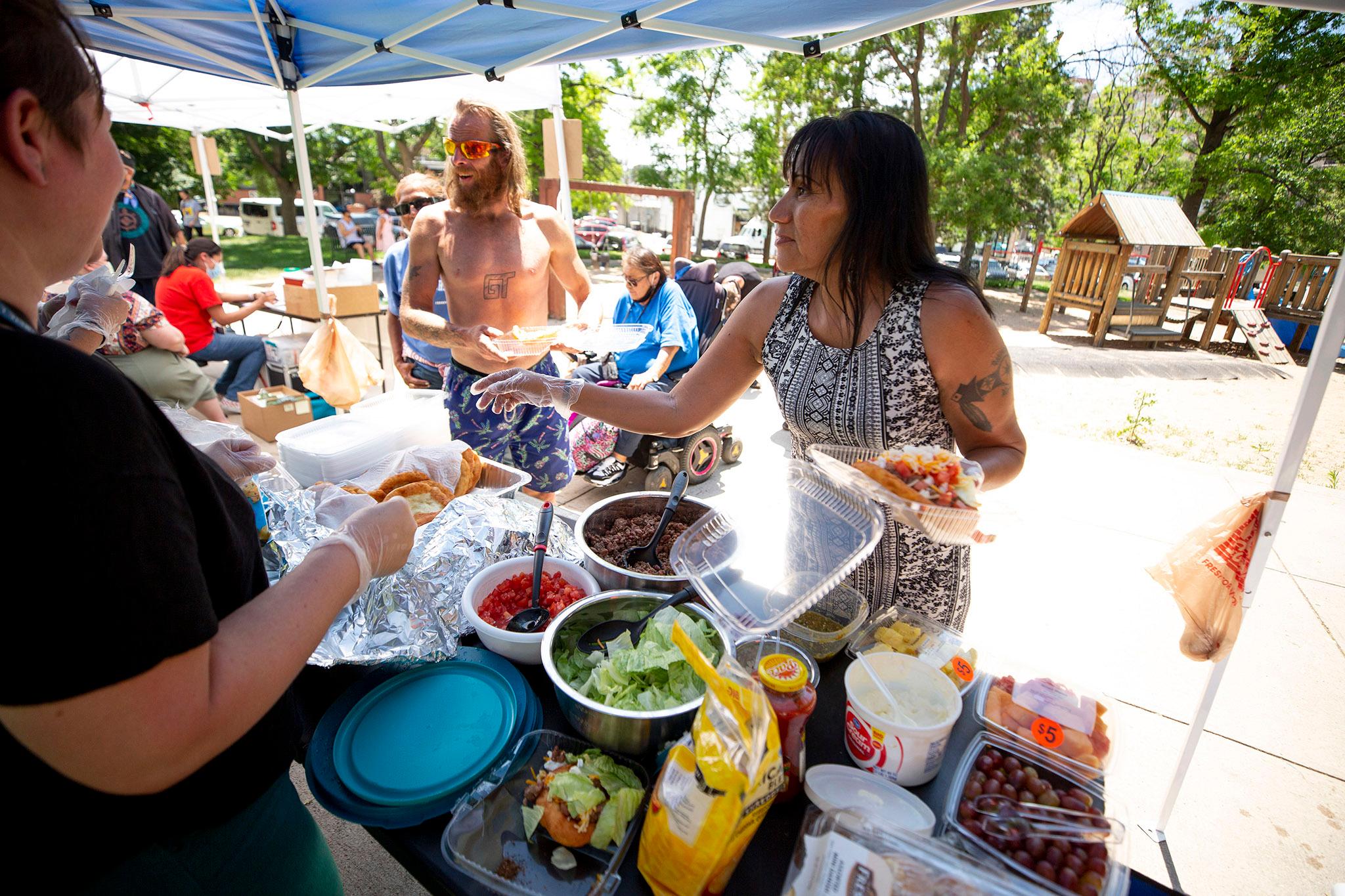
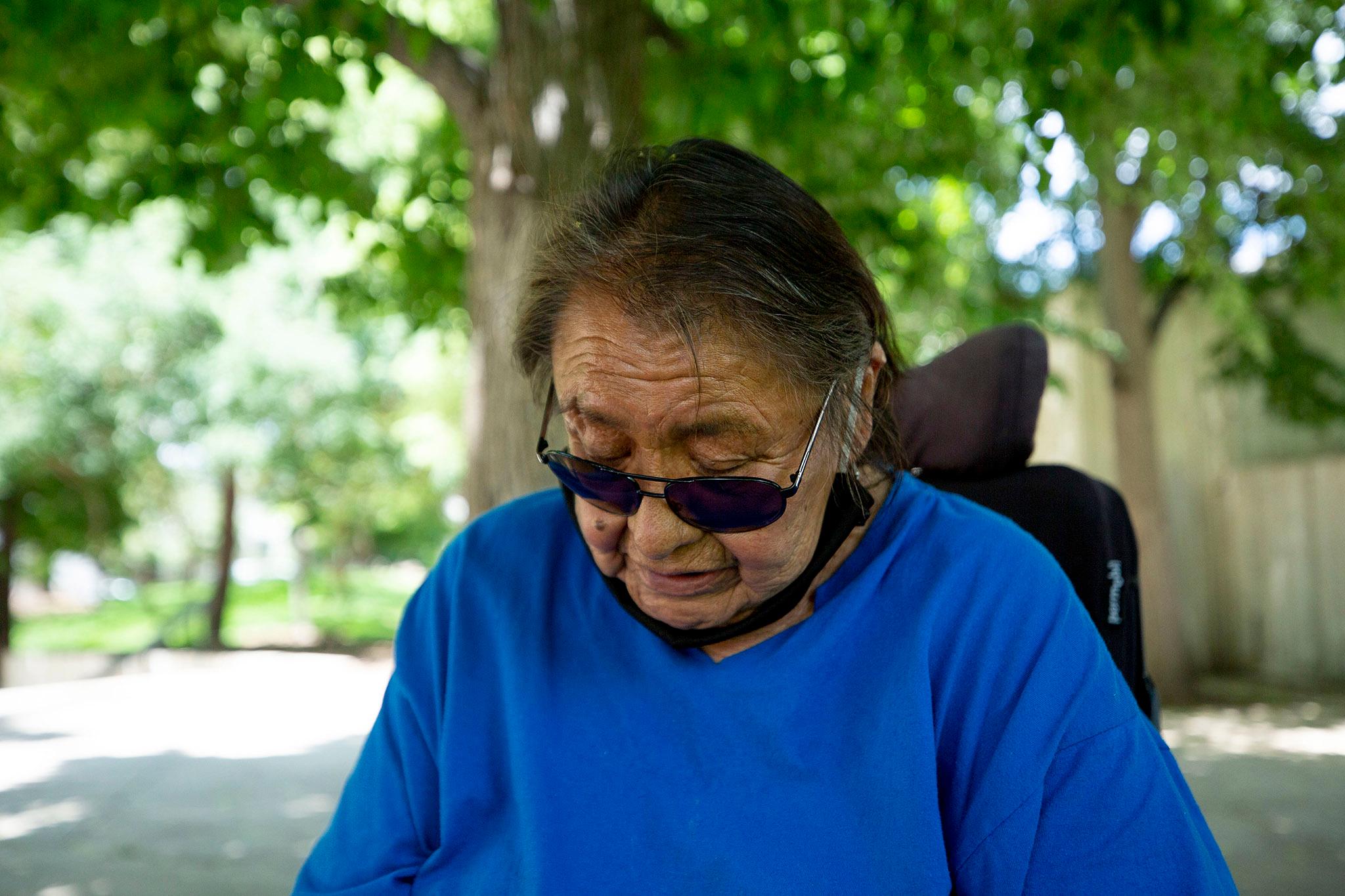
At the circle last week, her colleagues from the library handed out bottles of water and invited people to "step into my office" under a tent nearby to see what they might offer.
Phyllis Garnier, who is also from Pine Ridge, said she lost permanent housing a few months before COVID arrived in Denver. She was grateful to be one of hundreds of high-risk people that were offered motel rooms, paid for by the city, last year. She got vaccinated a few months ago, so she came to the talking circle instead to find some support. She lost two of her adult children during the pandemic, and she needed a place to vent.
"It's really hard, losing your kids. I wanted to go before them," she said. But this small opportunity to be in community made her feel better: "What a blessing."
People living outside may have specific reasons to avoid vaccination, though service providers are doing their best to overcome that hesitancy.
Cathy Alderman, spokesperson for the Colorado Coalition for the Homeless, said her organization has been working hard to distribute shots among people without homes in this city. They've been setting up clinics at motels, like the one where Garnier is staying, at shelters and in places where they know people living in tents might go for help.
So far, she said, the coalition has inoculated more than 2,000 people.
"We're kind of out and about everywhere where we can be," she said. "We definitely want to make sure that anyone who wants it has the ability to get it. And we're of course meeting a little bit of resistance and hesitancy, so when we see that we kind of deploy some of our clinicians who can really talk through the issues that people are concerned about."
That hesitation has been reported in other communities, from concerns that vaccines were approved too quickly to conspiracy theories.
But Elissa Hardy, lead social worker with Denver Public Library, said people who live outside may also be uniquely skeptical of messages from officials. She told us the city swept a large encampment at Lincoln Park, between the state Capitol and Civic Center Park, a few days after her colleagues helped distribute COVID tests last year. Ongoing displacements during the pandemic have impacted some people's willingness to seek out vaccines now that they're available.
"Rightfully so," she said, "because you come in and test, and then you're gonna move us."
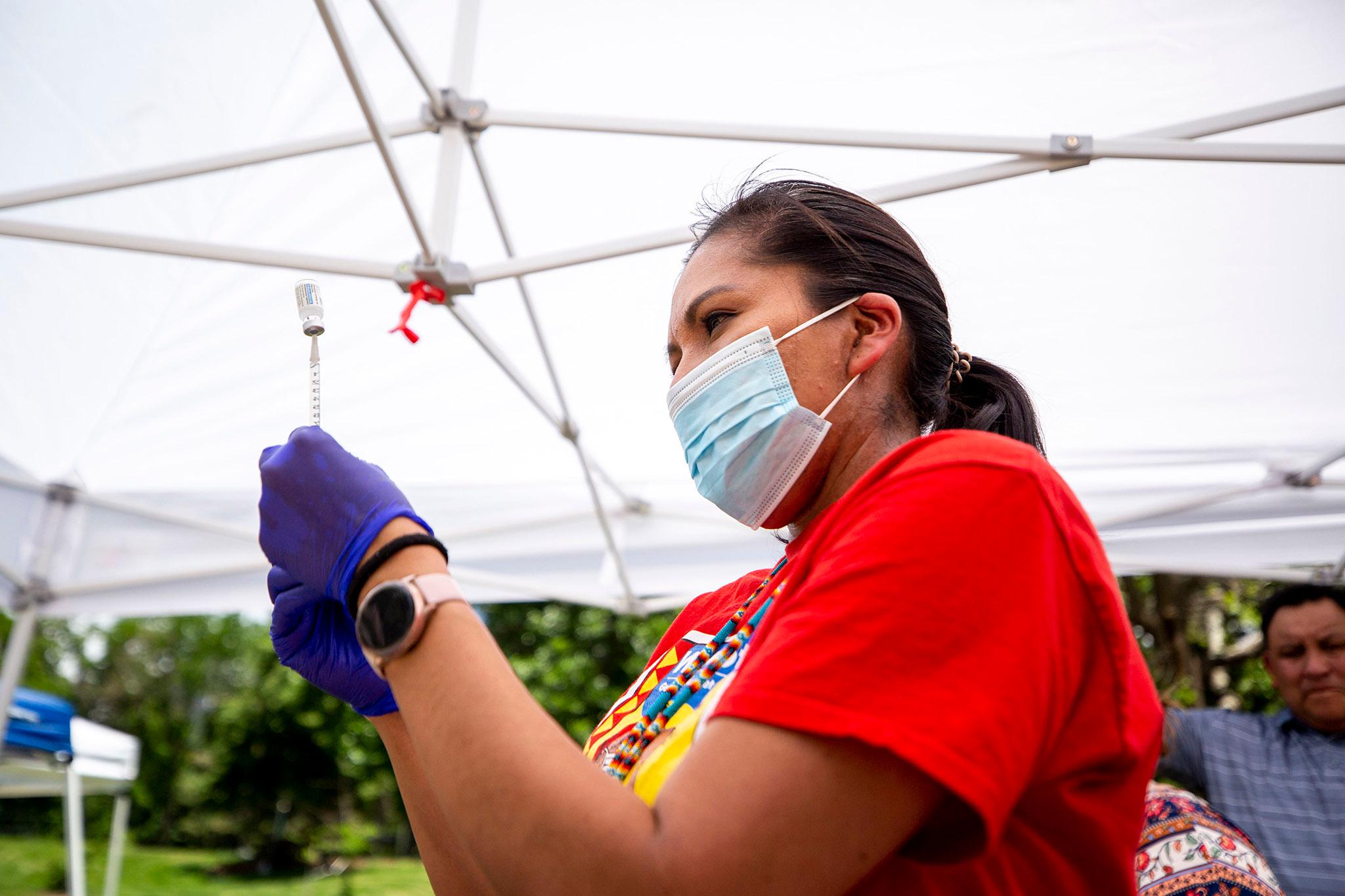
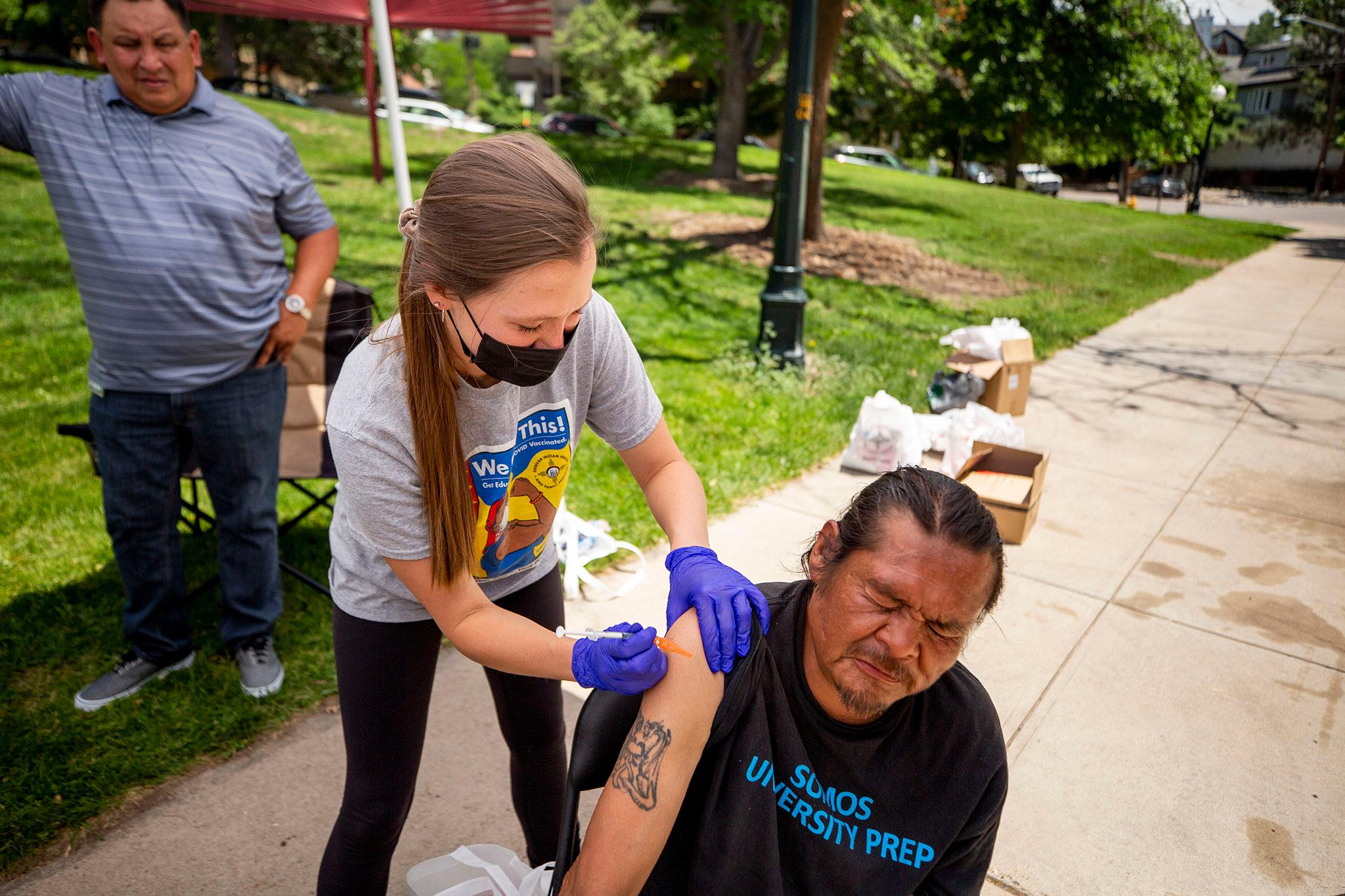
Sweeps have also disrupted vaccine rollout, Alderman said, which makes it difficult to administer varieties that require two separate shots. It's one reason Denver Indian Health brought vials filled with the one-dose Johnson and Johnson shot. The cleanups raise similar problems for providers who are trying to connect people with housing and mental health care.
Alderman said the Coalition is leaning on their long history of service to overcome some of these obstacles.
"We know that there's a lot of tension between the city and folks that are sleeping outside, so it's one reason why we send out street outreach workers and street medicine teams out to those encampments," she said. "We have a trust relationship with those folks because we're bringing services to them regularly anyway."
The library, too, is known throughout Denver's streets as a place to get help. Respects Nothing is hoping that fact will bring more people to her talking circles, Native or not, for whatever they need.

